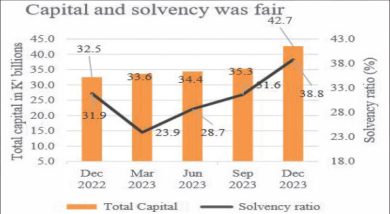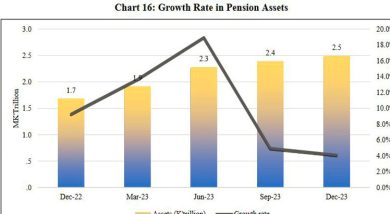TNM raises tariffs by 14 percent
While the kwacha is appreciating, fuel prices are falling and inflation is expected to drop further, mobile phone services provider, TNM, has announced a 14 percent rise in its tariffs effective March 4.
Malawi Stock Exchange (MSE)-listed telecommunications firm said the tariff adjustment is due to high inflation in the costs of utilities, goods and services.
The company argues the raise will ensure they maintain profitability of its operations to support sustainable development of the telecommunications sector, which in turn contributes to the country’s economy.
“To achieve this level of profitability, TNM must continue to invest heavily in network expansion and infrastructure development. This tariff adjustment, therefore, aims to keep pace with financing needs of TNM’s operations, while sustaining profitability,” said a statement from TNM’s management.
But the kwacha has since December last year been appreciating against major trading currencies, including the dollar gaining by over 10 percent to date, a situation that analysts said would lead to a fall in prices of imported goods and services.
Due to global trends and the appreciation of the kwacha, fuel prices were in January cut by 10 percent followed by another drop earlier this month by the same margin.
Along with the appreciation of the kwacha and falling fuel prices, inflation dropped by three percentage points to 21.2 percent in January, pushed down by both food and non-food items. Going forward, analysts expect inflation to fall further while the Reserve Bank of Malawi (RBM) anticipates the rate to recede to 16 percent due to improved availability of food and a further appreciation of the kwacha.
Due to factors, including market structure, in November last year, the International Telecommunication Union (ITU)indicates in the Measuring the Information Society 2014 Report, that Malawi has one of the most unaffordable cellphone tariffs in the world, averaging about $12.67 (about K5 701) per month in 2013, which is about 56.29 percent of what an average person earns.
The ITU report has since been disputed by the Association of Telecommunications Operators Limited (Atol).
Earlier this year, research by senior telecommunications economist and market and policy strategist, Andrew Dymond, on market analysis and competition assessment, showed that the cost of mobile telephone services in Malawi is high and proposed an introduction of a third and maybe fourth GSM mobile operator in order to break the market co-dominance that exists in the sector.







Kenaka Airtel raises tarrifs mukuti bela bwanji